What is Proof of Stake (PoS)?
Last updated

Table of Contents
How Does Proof of Stake (PoS) Work?
In a Proof-of-Stake (PoS) system, the process of validating transactions and adding new blocks to the blockchain is driven by validators. These validators are chosen based on the amount of cryptocurrency they hold and are willing to "stake" or lock up as collateral. This staked cryptocurrency acts as a financial guarantee of the validator's good behavior. If a validator acts maliciously or attempts to disrupt the network, they risk losing a portion or all of their staked assets.
The selection of validators can vary between different PoS implementations, but common methods include:
- Randomized Selection: Validators are chosen randomly based on the size of their stake. The larger the stake, the higher the probability of being selected.
- Delegated Proof of Stake (DPoS): Token holders vote for delegates who represent them as validators. Delegates with the most votes are responsible for validating transactions and adding blocks.
- Nominated Proof of Stake (NPoS): Validators nominate other validators, and those with the most nominations are chosen to participate in the consensus process.
Once a validator is selected, they are responsible for proposing a new block of transactions to be added to the blockchain. Other validators then verify the proposed block, ensuring that all transactions are valid and follow the rules of the protocol. If a majority of validators agree on the validity of the block, it is added to the blockchain, and the validator who proposed the block receives a reward. This reward is in the form of newly minted cryptocurrency and/or transaction fees.
Advantages of Proof of Stake (PoS)
PoS may offer several advantages over Proof of Work (PoW), the original consensus mechanism used by Bitcoin:
- Energy Efficiency: PoS eliminates the need for energy-intensive mining, making it a more environmentally friendly alternative. Validators do not need to use large amounts of computational power to solve complex puzzles. Learn more about Bitcoin's environmental impact.
- Scalability: PoS can handle a higher volume of transactions per second compared to PoW, as the process of validating blocks is less computationally demanding.
- Lower Barriers to Entry: PoS allows for greater participation in the consensus process, as anyone with a sufficient amount of cryptocurrency can become a validator or delegate their stake to others. This can lead to a more decentralized and democratic network.
- Reduced Risk of 51% Attacks: In PoS, attacking the network would require acquiring a majority of the staked cryptocurrency, which, depending on the size of the network, could be more costly than acquiring a majority of the hashing power in a PoW system.
Disadvantages of Proof of Stake (PoS)
While PoS offers several advantages, it also has some potential drawbacks:
- Nothing at Stake Problem: In some PoS implementations, validators may be able to validate multiple chains simultaneously without any additional costs. This could potentially lead to a situation where validators support multiple versions of the blockchain, which could make the network less secure.
- Centralization Risks: If a small number of entities control a majority of the staked cryptocurrency, they could influence the network's governance and decision-making processes, leading to centralization.
- Complexity: PoS systems can be more complex to implement and manage compared to PoW, requiring careful consideration of security measures and governance mechanisms.
- "Rich Get Richer" Concerns: Critics argue that PoS can lead to a concentration of wealth, as those with a larger stake have a higher chance of being selected as validators and earning rewards. This could potentially create a system where the rich get richer, while smaller holders have less influence.
Read more: What is Bitcoin governance? and How does governance work in Ethereum?
Proof of Stake in Popular Blockchains
PoS has gained widespread adoption in the cryptocurrency space, with several prominent blockchains utilizing this consensus mechanism:
- Ethereum: Ethereum, the second-largest cryptocurrency by market capitalization, transitioned from PoW to PoS in September 2022 as part of its Ethereum 2.0 upgrade. This move significantly reduced Ethereum's energy consumption and paved the way for future scalability improvements.
- Cardano: Cardano, a blockchain platform known for its scientific approach to development, uses a PoS consensus mechanism called Ouroboros.
- Solana: Solana, a high-performance blockchain platform, utilizes a unique PoS variant called Proof of History, which combines PoS with a verifiable delay function to improve transaction throughput.
- Polkadot: Polkadot, a multi-chain network that enables interoperability between different blockchains, uses a Nominated Proof of Stake (NPoS) consensus mechanism.
Learn More
To further your understanding of Proof of Stake and its role in the cryptocurrency ecosystem, explore these resources:
- What is Staking?: Discover how staking works and its benefits for cryptocurrency holders.
- Bitcoin.com Wallet App: A secure and easy-to-use wallet for managing your cryptocurrencies, including those that use Proof of Stake. Anyone can stake ETH in the Bitcoin.com Wallet to earn passive rewards on their ETH holdings. Learn more about ETH Staking here.
Related guides
Start from here →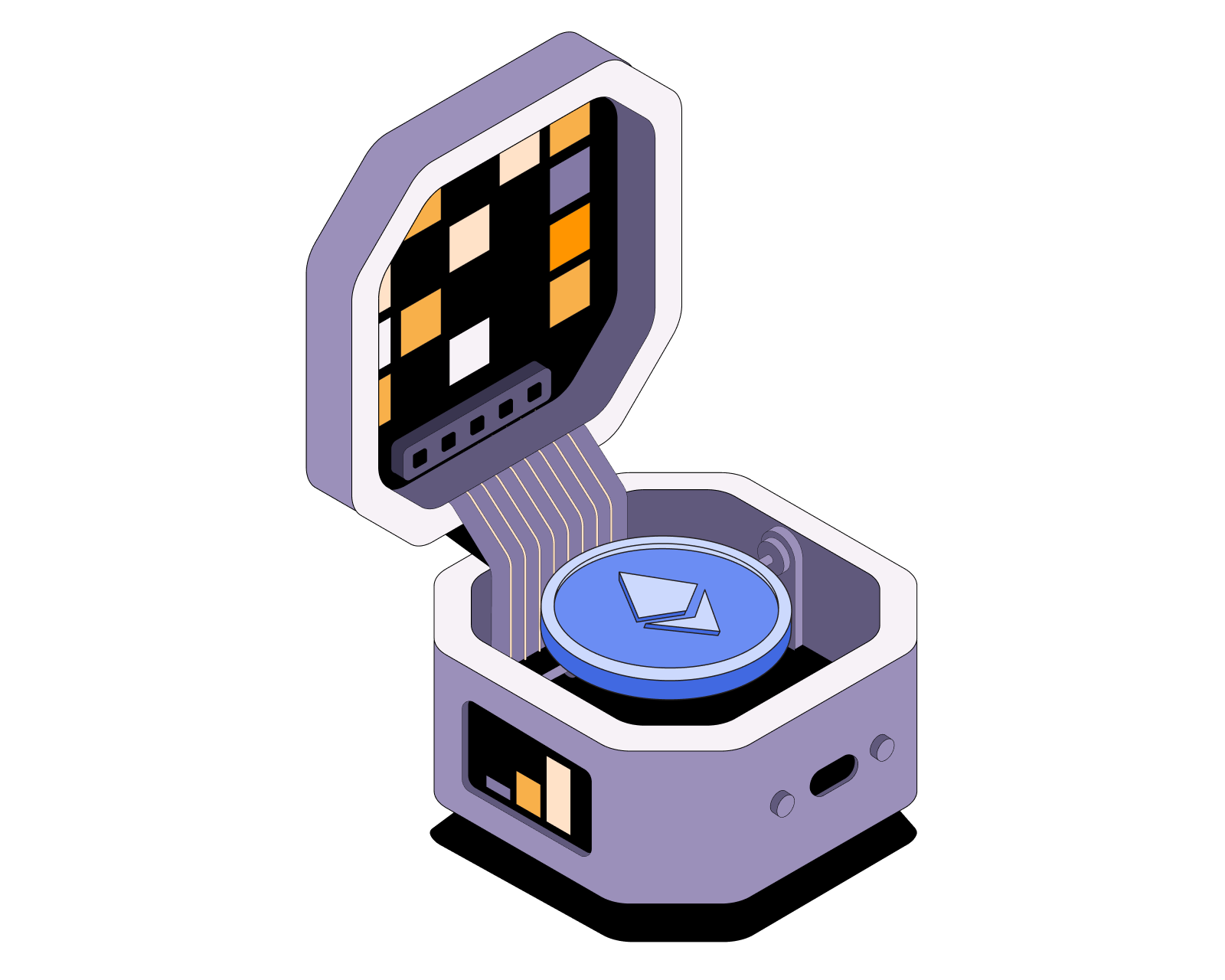
What is Ethereum?
Understand Ethereum's key characteristics.

What is Ethereum?
Understand Ethereum's key characteristics.
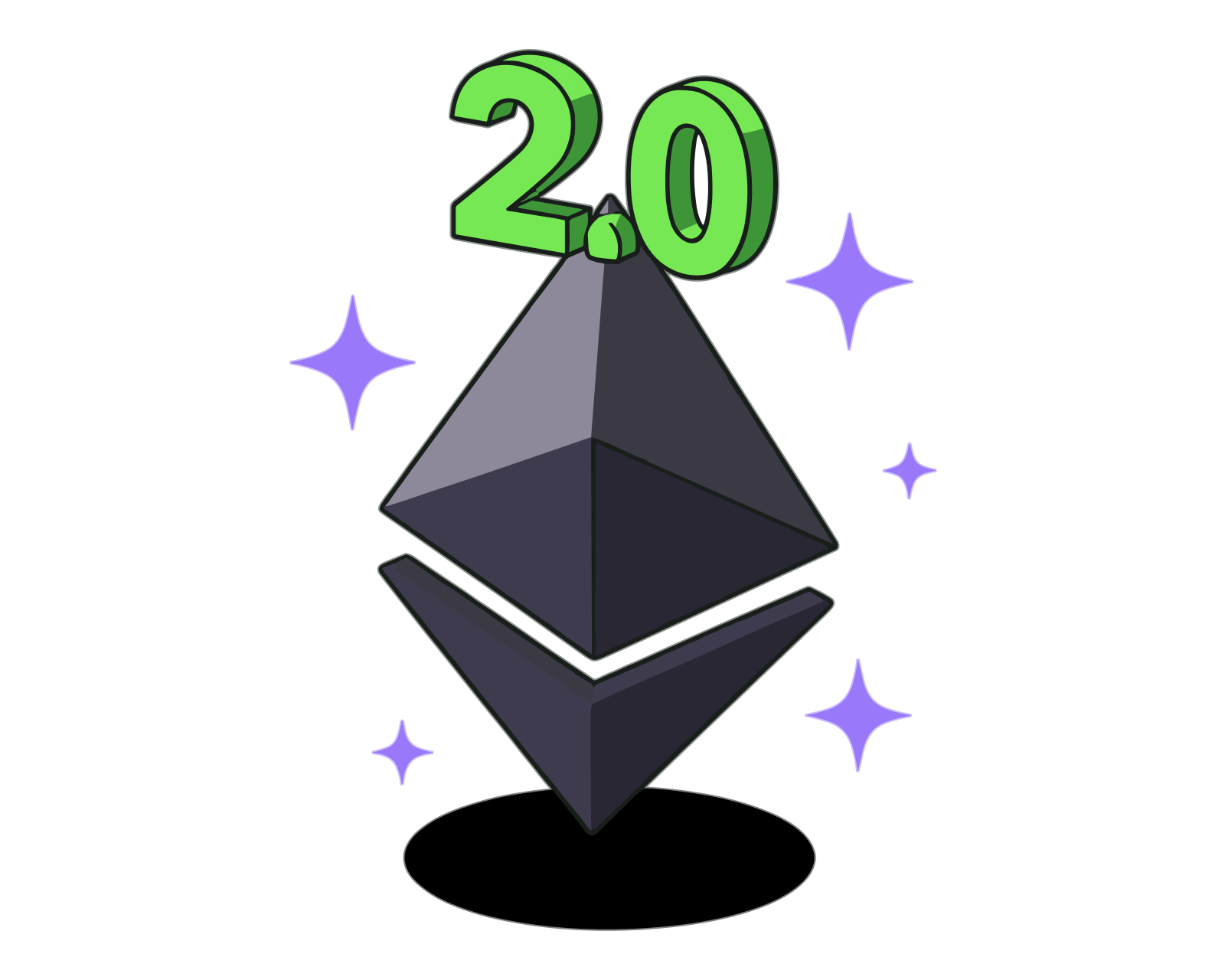
What is Ethereum 2.0?
Learn about Ethereum's attempt to solve the blockchain trilemma with a move to Proof of Stake, sharding, and more.

What is Ethereum 2.0?
Learn about Ethereum's attempt to solve the blockchain trilemma with a move to Proof of Stake, sharding, and more.
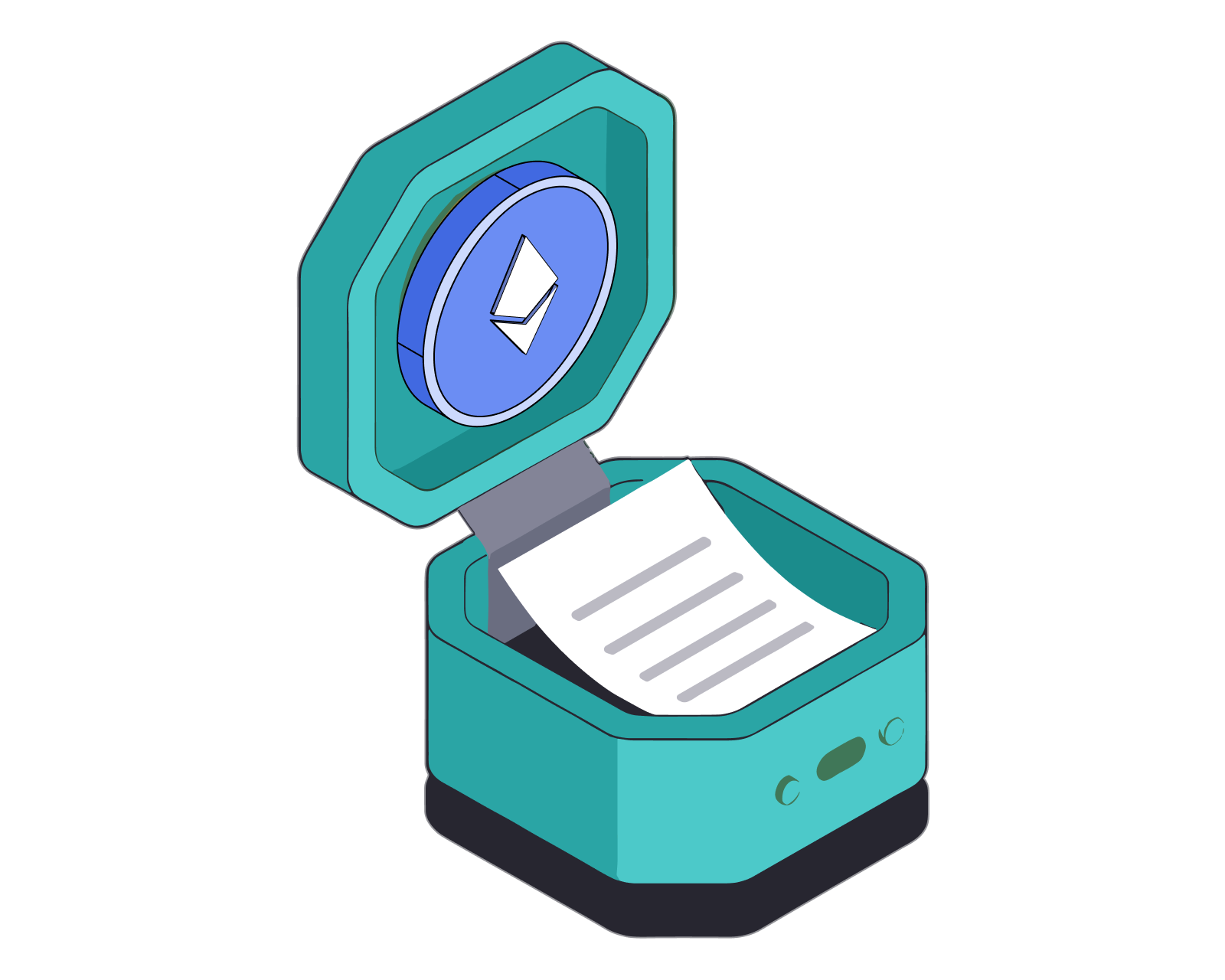
What's a smart contract?
Get the basics on the "software" that runs on decentralized networks.

What's a smart contract?
Get the basics on the "software" that runs on decentralized networks.

What is DeFi?
Learn what makes decentralized finance (DeFi) apps work and how they compare to traditional financial products.

What is DeFi?
Learn what makes decentralized finance (DeFi) apps work and how they compare to traditional financial products.
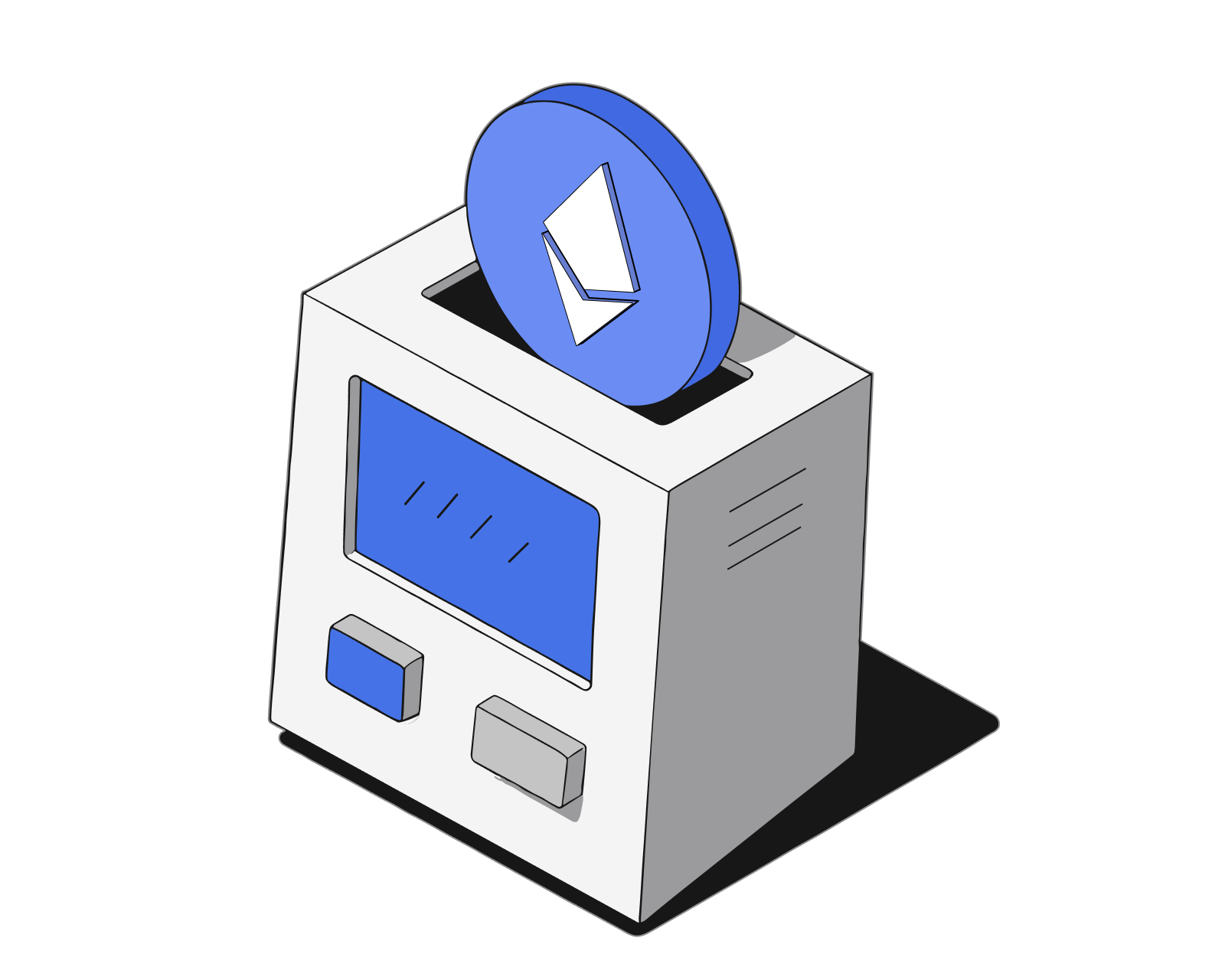
What is staking?
Learn about the power of staking.

What is staking?
Learn about the power of staking.
STAY AHEAD IN CRYPTO
Stay ahead in crypto with our weekly newsletter delivering the insights that matter most
Weekly crypto news, curated for you
Actionable insights and educational tips
Updates on products fueling economic freedom
No spam. Unsubscribe anytime.

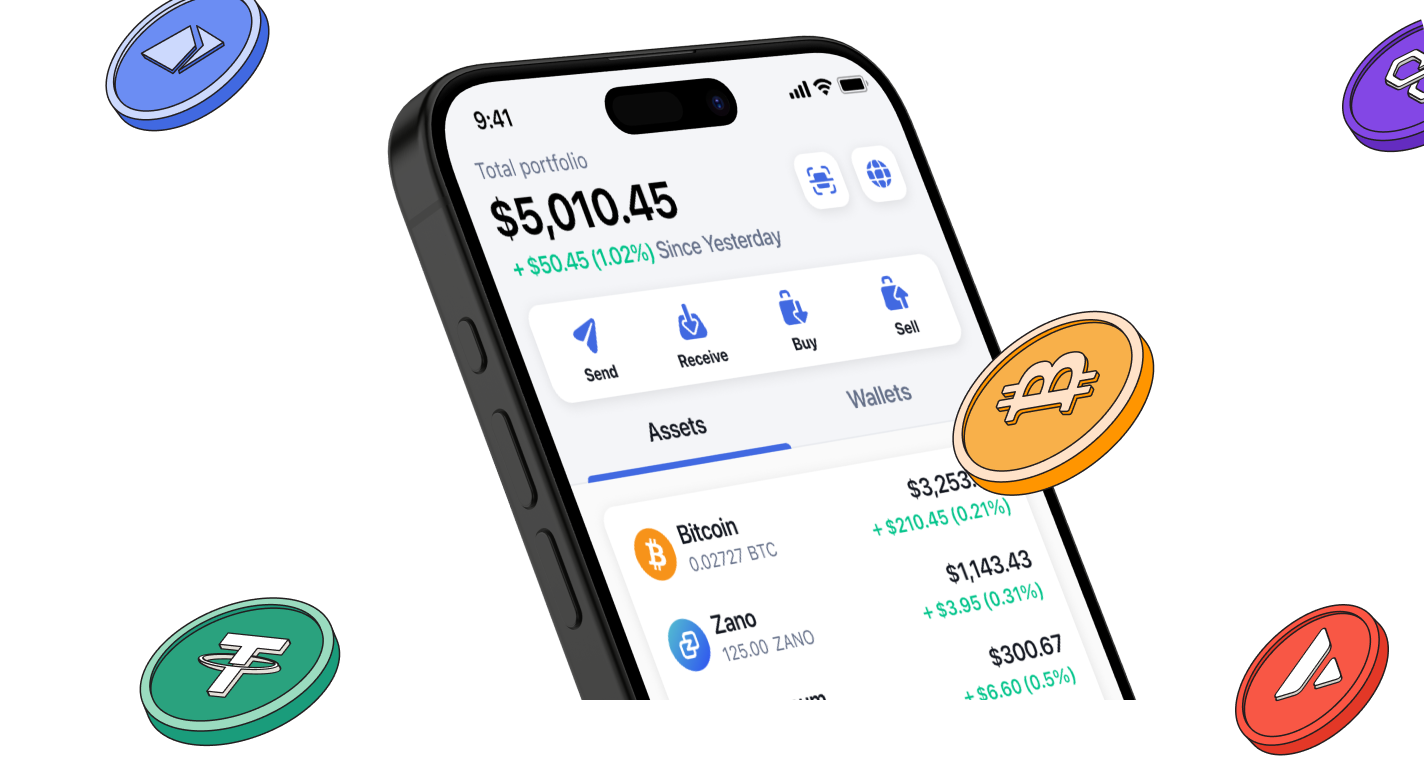

Start investing safely with the Bitcoin.com Wallet
Over wallets created so far
Everything you need to buy, sell, trade, and invest your Bitcoin and cryptocurrency securely

© 2026 Saint Bitts LLC Bitcoin.com. All rights reserved



